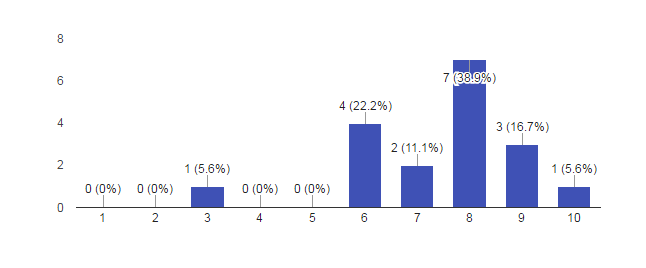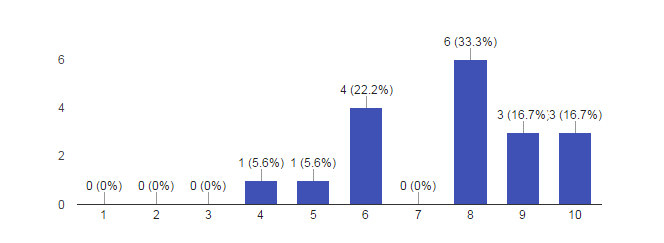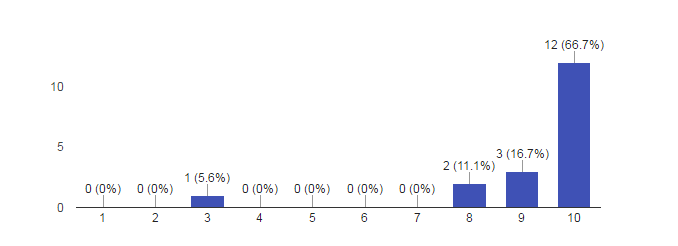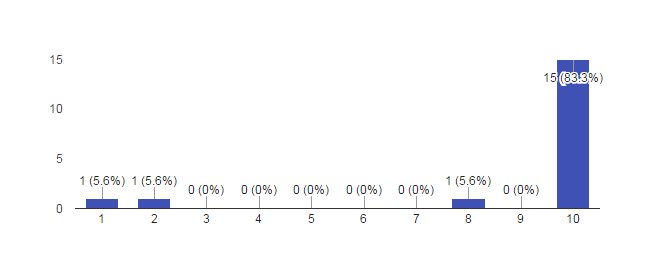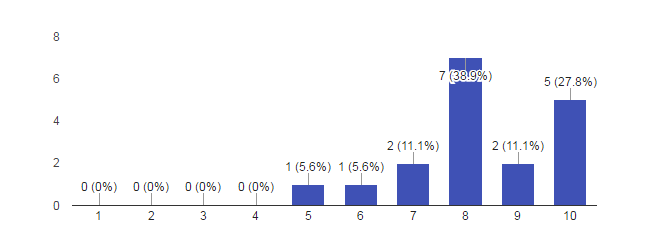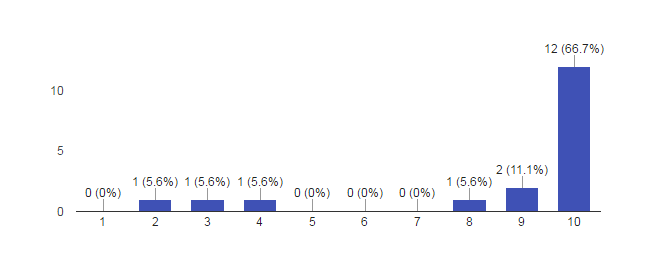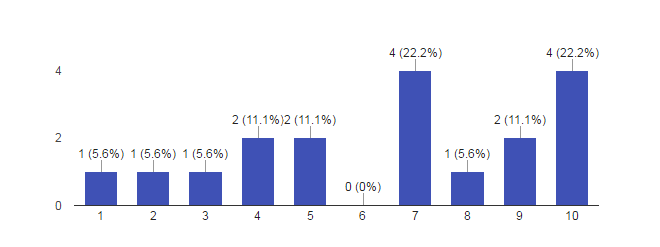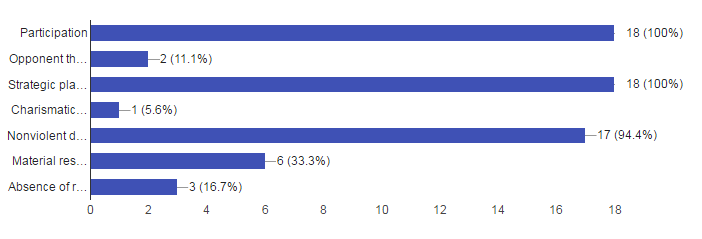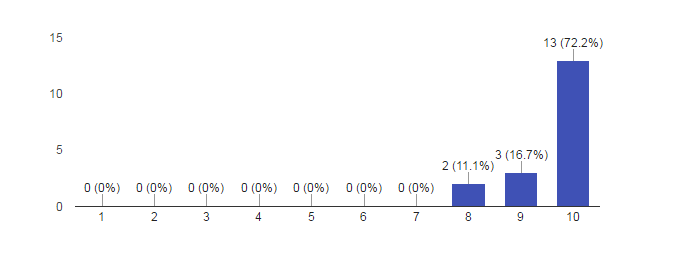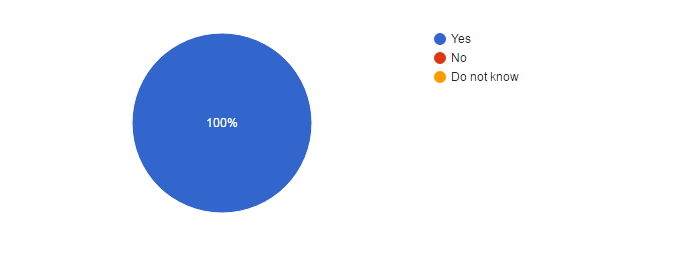- 2016-2017 Participant-Led Online Course Assessment
- Applications, admission and course participants
- Course description
- Course goals
- Participant-led course
- Self-learning community code of conduct
- Participant time and activity commitment
- Course content
- Learning gains survey results
- Final course evaluation results
- Selected testimonials
2016-2017 Participant-Led Online Course Assessment
In response to increased demand for knowledge about civil resistance, ICNC hosted in 2016 an additional online seminar beyond its annual ICNC/Rutgers online course. This second course offered was entitled “Civil Resistance Unpacked: Strategic Practice and Analysis” and took place from December 6, 2016 to January 25, 2017.
In the past several years, ICNC has received rapidly increasing demand for knowledge and greater understanding of the dynamics and power of civil resistance. Individuals, groups, and organizations in the United States and around the world are reaching out to us in record numbers to inquire about civil resistance learning opportunities. We view online courses as a way to better keep up with this increasing demand, achieve greater scale, and reach more people in our educational efforts.
Based on the online seminar ICNC offers each year in partnership with Rutgers University, the special online course “Civil Resistance Unpacked: Strategic Practice and Analysis” offered modules on civil resistance with a variety of readings and videos that guided participants in their learning, online discussions, and interactions. Participants included activists, organizers, scholars, students, members of the policy community and NGOs, journalists, and others with extremely diverse experience with civil resistance and knowledge on this field of study and practice.
Applications, admission and course participants
Within only 13 days of advertising the course, ICNC received 97 applications from around the world. Of the 97 applicants, 51 participants were accepted. A poll conducted during the orientation webinar indicated that the majority of the participants:
- identified themselves as practitioners;
- were predominantly interested in mobilizing for social and environmental justice; and
- wanted to seek advice from and exchange ideas with other participants.
In addition, the participants specified their learning interests and goals; their recent experience related to civil resistance; how they planned to enrich a self-learning community that this special course was based on; and where they would apply the knowledge gained from the course.
Course description
Civil resistance is a social and political phenomenon that defies a long-held belief in the power of arms to challenge a brutal, violent adversary. Contrary to the violence-centered narrative that dominates mass media, nonviolent resistance campaigns against repressive states have been on the rise in the last few decades, surpassing violent insurgencies by almost 5 to 1 in the last 15 years.
For the past several years, ICNC has supported work to develop unique datasets of nonviolent campaigns (NAVCO). In 2011, this work led to a ground-breaking quantitative study that showed that civil resistance movements often emerge and succeed in challenging environments. It also established that civil resistance struggles are more than twice as effective against violent states as armed resistance groups.
Informed by these important developments in research and the practice of civil resistance, this free, online course provided an interactive, in-depth, and multidisciplinary perspective on civilian-based movements and campaigns that defend and obtain fundamental rights and justice around the world. The course aimed to explain the nature of civil resistance and its force, underlying dynamics, and effectiveness.
During the course participants reflected on the skills and agency of ordinary people, their strategies and tactics, how movements can confront repression, the backfire effect, and how movements have caused defections among their adversaries’ supporters. We looked at how entrenched political and social structures and practices shifted under the pressure of organized nonviolent movements, and the long-term impacts on societies, nations, and institutions. We also studied the role of gender and women in civil resistance.
Finally, the course also examined a variety of case studies of civil resistance struggles, including movements for democracy and human rights, as well as movements challenging corruption, corporations, and abusive and violent non-state actors.
The online course involved a number of activities, including forum posts and online discussions, readings, and viewing videos.
Course goals
The main goals of this online course were to:
- learn about main concepts and ideas of civil resistance
- become familiar with various cases of nonviolent campaigns and movements
- reflect on the effectiveness of civil resistance and its power to overcome adversarial conditions
- share experience and knowledge with other participants and moderators
- help participants become more informed observers of nonviolent conflicts, and effective conveyors of civil resistance knowledge
Participant-led course
The main difference between this course and previous online seminars was in the way that online interactions were envisaged to take place. “Civil Resistance Unpacked” was an entirely participant-driven course whereby, after reviewing relevant modules, participants interacted with one another on various forums without additional ICNC moderation or substantive input. In that sense, participants were part of a learning community that was built around participants’ motivation, open attitude to learning, desire to share and interact with others, and relevant knowledge and experience.
Participants formed a learning community whose intellectual strength and vibrancy depended solely upon its members and their active and insightful written contributions in various forums. No outside moderators joined this class. A specific set of questions set up in advance by course administrators in the discussion forums guided participants’ exchanges. In these forums, participants were expected to monitor and read other learners’ posts, share innovative ideas and thoughts within the learning community, ask follow-up questions to other participants, suggest answers and plausible solutions as well as, in rare cases, flag any inappropriate behavior on the forums.
Self-learning community code of conduct
Because no outside moderation of online discussions was envisaged for this course, a specific code of conduct was developed to ensure that participant interactions and knowledge sharing were as meaningful, substantive, and respectful as possible.
Participants committed themselves to following and enforcing the follow code of conduct.
1. What participants are expected to do in their online interactions
- Respect each others’ points of view
- Share comments that relate to forum questions and the subject at hand
- Review assigned material (readings/videos) included in the course chapters, before responding to questions raised in the forums.
- Keep an open mind and a desire to learn from others. People in the community may have strong perspectives, but do not dismiss others simply because they have a different perspective.
- Focus on the phenomenon of civil resistance. If you find your conversations going onto other topics that are not directly related to the course, then you should feel free to take those conversations outside of the course (i.e. over email, Facebook, phone, etc.).
- Focus on debating ideas, and separate people from ideas. If you disagree with an idea, don’t attack the person who posted the idea, or make assumptions about their motives.
- Back up your ideas, criticism and arguments with references to authoritative and verified sources or personal experience.
- In addition to the readings, refer to other source materials to support your statements or as background information to the point you are making.
- Read carefully and in entirety posts made by other people before replying to them. If something is not clear in someone’s else comment, do not hesitate to ask for clarifications and further explanations while you offer your own points of view on the discussed matter.
- Present various possible arguments that might be made around the discussed issue.
- Write concisely more than expansively.
- Post regularly to the required forums and catch up as soon as possible if you fall behind.
- Formulate your thoughts and ideas in clear language. Other participants may have limited knowledge about the case that you are elaborating on.
- Other learners are people too, although you will not necessarily see them. Do not use ideological or divisive language and instead apply objective reasoning that is backed up by evidence and arguments from authoritative sources.
- Share first-hand accounts and stories from your personal and professional work, study, or activity that pertain to the discussed subject matter.
- Humor, encouragement, praise, constructive criticism, and putting yourself in someone else’s shoes are the most effective ways to engage with others and facilitate informed discussions that do not exclude anyone.
- No profanity or personal insults.
- Do not hesitate to report any inappropriate, offensive or vulgar posts to the course administrators.
2. Additional commitments of members of the learning community
- The learning experience is optimized when all participants remain active all the way through the end of the course. Do not abandon your fellow participants in the course (unless there is a family or personal emergency); they are counting on your active contributions, just as you are theirs.
- Do not be tardy with posting during the week as this negatively affects your and other participants’ learning progress.
- Do not copy and paste from outside sources when you write in forums. Use your own wording and vocabulary, though feel free to cite (and use quotation marks when you do) authoritative and verifiable sources.
Even though we have never had any problems of the following kind during our previous online courses, we want to make sure that participants:
- Do not use ad-hominem attacks or any race, gender, religion, national origin, age, disability, sexual orientation based attacks.
- Do not use threats or incite any kind of violence.
Participant time and activity commitment
Participants were expected to spend between 7 and 10 hours per week in the online classroom, or a minimum of 1 hour per day for the full duration of the course on reviewing materials, posting comments about the readings and assigned videos, and interacting with/responding to other participants’ posts.
Course content
Module 1: Foundations of Civil Resistance
What Is Civil Resistance?
People and Power
Effectiveness of Civil Resistance
Additional Resources
Module 2: Emergence of Civil Resistance Movements; Conditions and Skills
Emergence of Civil Resistance Movements
Conditions and their Impact
Skills Drive Civil Resistance
Additional Resources
Module 3: Strategy and Tactics of Nonviolent Struggle
Nashville Lunch Counter Campaign (U.S. Civil Rights Movement)
Strategic Planning and Tactical Choices
Cultural Resistance Tactics
Tactical Innovation
Conflict Analysis Tools
Additional Resources
Module 4: Backfire, Defections and Violent Flanks
Repression and Backfire
Defections
Violent Flanks
Additional Resources
Module 5: New Frontiers in Civil Resistance Studies
People Power versus Corruption and Impunity
Civil Resistance in War-Torn Environments
Women and Nonviolent Resistance
Democratization and Civil Resistance
Civil Resistance and Corporate Governance
Additional Resources
Module 6: Final Course Evaluation & Learning Gains Survey
Post Course Learning Gains Survey
Final Course Evaluation
Learning gains survey results
ICNC distributed pre-seminar and post-seminar surveys to measure gains in learning progress among course participants. Included below are the graphed responses to the questions included in the surveys. In general, participants’ responses illustrate a positive trend in learning gains in civil resistance knowledge.
1. On the scale below, select the number that best represents your current knowledge of civil resistance or nonviolent movements. (1: None; 10: A lot)
2. On the scale below, identify your comfort level in speaking to others about civil resistance or nonviolent movements. (1: Not at all ; 10: Very comfortable)
3. On the scale below, select the number that best represents your view that revolutions against brutal regimes can succeed ONLY if revolutionaries retain the option to use violent means. (1: Strongly agree ; 10: Strongly disagree)
4. On the scale below, select the number that best represents your view that protests, marches, and demonstrations are the ONLY civil resistance methods. (1: Strongly agree ; 10: Strongly disagree)
5. On the scale below, select the number that best represents your view on how successful you think civil resistance campaigns against repressive states have been in the past. (1: Not successful; 10: More successful than not)
6. On the scale below, select the number that best represents your view that movements that face repression must fail. (1: Strongly agree ; 10: Strongly disagree)
7. On the scale below, select the number that best represents your view that in order to be successful nonviolent movements must receive support from external actors. (1: Strongly agree ; 10: Strongly disagree)
8. Which of the factors, in your view, is/are essential for a nonviolent movement to be successful. You can select more than one. (Participation; Opponent that is willing to negotiate; Strategic planning; Charismatic leader; Nonviolent discipline; Material resources; Absence of repression)
9. On the scale below, select the number that best represents your view about how important you think nonviolent discipline is in a successful civil resistance movement. (1: Not at all; 10: Extremely important)
10. Do you think that nonviolent civil resistance is more effective than violent resistance against repressive regimes?
Final course evaluation results
Included below are graphed responses to selected questions from the final course evaluation. (1: Strongly disagree; 5: Strongly agree)
1. Course content was organized and planned:
2. The goals of the course and its modules were clear:
3. Course modules and content were timed and sequenced well:
4. Course content was comprehensive and balanced, and topics were well selected:
5. Taking this online course was a positive experience:
6. I now have more knowledge about civil resistance and its various topics than I had before taking the course:
7. I learned a considerable amount of new information about civil resistance:
8. I learned about civil resistance from other course participants:
9. Course content matched my interests and professional needs:
10. The knowledge I gained from the course will be relevant in my current and future study/work/activities:
11. The course met or exceeded my expectations:
12. I would recommend this course to other people:
13. How would you assess your own engagement with the course material, including participation in the course forums? (1: Did not engage with the course material much and did not post regularly or at all to forum discussions; 5: Engaged with the course material as per the original commitment of at least 1 hour per day; 7 hours per week minimum and posting regularly to forum discussions)
14. How effective was the self-learning community that this course relied on for your learning, interactions and networking? (1: Not effective; 5: Very effective)
Selected testimonials
“If you want to know how to build successful campaigns and movements, this course can help you do it. You wanna win, right? If so, this is the course for you!”
-Stuart Basden, ICNC Special Course Participant
“The ICNC online course provided a tremendous opportunity to learn about civil resistance and People Power. It energized me and renewed my faith that together, united and organized, we can make a positive difference in the world.”
-Maureen Daly, ICNC Special Course Participant
“Taking this course expanded my knowledge and awareness of all aspects of civil disobedience from misperceptions, its effectiveness, history, tactics and challenges. Collectively participants shared a wealth of experience. This course is highly recommended whether one is new or a veteran to nonviolent action.”
-ICNC Special Course Participant
“This course provided me with easy access to crucial materials that I immediately incorporated into my teaching. The resources are abundant and well organized. Since we will continue to have access to the “optional” materials, I will go back again and again to increase my knowledge of civil resistance.”
-ICNC Special Course Participant
“This is a wonderful course for learning the rudiments of non-violent civil resistance. It is stocked with many sources and resources to teach participants a strong historical and contemporary understanding of civil resistance. It is also great to connect with many people who share interests in the topic and provides opportunities to learn from them.”
-Austin Silvan, ICNC Special Course Participant
“As an activist and a teacher, I find the online courses offered by the ICNC a great way to find new resources I can use in workshops and classes I teach. These courses are the place I turn to in order to find new research findings in the ever-growing field of civil resistance studies that help with both my teaching and use of civil resistance in my organizing work.”
-ICNC Special Course Participant
“Taking the “Civil Resistance Unpacked: Strategic Practice and Analysis” course during the presidential transition was empowering and insightful. The course demystified the specifics of nonviolent civic engagement and educated on its many diverse forms that should be part of any true democracy. This reinvigorated my commitment to citizen action and the positive power of people acting in community towards common goals.”
– Jeanine M. Canty, ICNC Special Course Participant
“I found the course extremely helpful and I learned a lot. There is a great mix of video and reading content that’s been carefully selected to convey the most relevant and cutting edge research on civil resistance. The discussion forums really helped me to think through the materials and to apply them to my own context. Much of the material that I wrote in response to the questions posed in the forums will continue to be useful to me now after the course.”
-Doug Coltart, ICNC Special Course Participant






